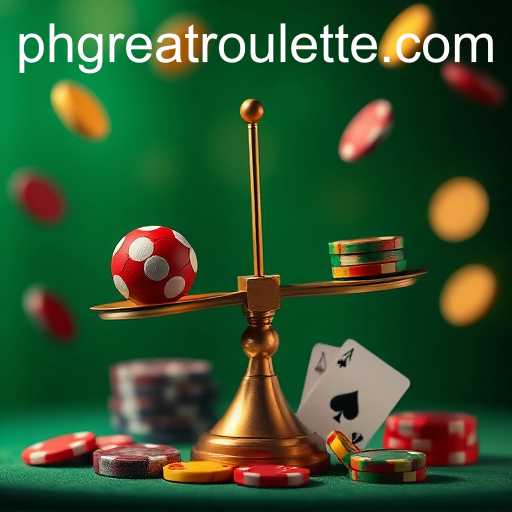An in-depth exploration of responsible gambling, focusing on understanding the balance between entertainment and risk, with emphasis on the keyword 'phgreat'.
Responsible Gambling: Understanding the Balance
Gambling has always been a popular pastime for many individuals around the world. With the advent of digital technology, the accessibility to various gambling platforms has increased significantly. However, with this increased accessibility comes the responsibility of ensuring that gambling remains a form of entertainment and does not turn into a problem. This is where the concept of responsible gambling becomes paramount.
The Essence of Responsible Gambling
Responsible gambling is not merely a buzzword; it reflects a commitment to ensuring that individuals who choose to gamble can do so safely and with full control over their actions. It encompasses a set of social and ethical policies that support the universal ethos of safe and fair gambling. Key to this is the understanding that gambling should primarily be a form of entertainment, rather than a means to make money.
The Role of 'phgreat' in Promoting Responsible Gambling
The keyword 'phgreat' emphasizes the positive aspects of responsible gambling practices. 'Phgreat' symbolizes a state where gambling is purely recreational and greatly enjoyable without negative consequences. It encourages players to engage in gambling activities wisely by setting limits and being aware of the risks involved.
Setting Limits
One of the cornerstones of responsible gambling is setting limits. By pre-determining how much money and time one is willing to spend on gambling, players can enjoy the activity without undue stress on their finances or personal lives. 'Phgreat' advocates for the importance of maintaining these boundaries strictly to prevent the onset of gambling-related problems.
Understanding the Risks
Another essential aspect of responsible gambling is understanding the risks associated with it. 'Phgreat' continues to spread the message that risk awareness is vital in making informed decisions about gambling. Recognizing the odds, knowing that losses can occur, and being prepared for them can help maintain a healthy relationship with gambling.
The Importance of Self-Awareness
Responsible gambling also highlights the importance of self-awareness. Understanding one's triggers and recognizing emotional states that may lead to problematic gambling can help mitigate risks. Self-awareness allows players to reflect on their motives and emotions, ensuring that gambling remains a controlled activity.
Tools and Resources for Responsible Gambling
There are numerous tools and resources available to assist individuals in gambling responsibly. Many platforms offer features that allow players to set deposit limits, opt for self-exclusion, or access support services if required. These resources are vital in helping players keep their gambling activities in check and adhering to a responsible gambling framework endorsed by 'phgreat'.
The Role of Gambling Operators
Gambling operators carry a significant responsibility to promote responsible practices. They are encouraged to create an environment where gambling remains a positive experience. Offering educational resources, promoting self-assessment tests, and providing easy access to support services, they play a crucial part in fostering a culture of responsibility as encouraged by 'phgreat'.
Government Regulations and Responsible Gambling
Supportive government regulations are fundamental in promoting responsible gambling. They ensure that operators adhere to fair practices and provide necessary safeguards to protect vulnerable individuals from the potential harms of gambling. Government agencies are also involved in funding and supporting research and treatment related to gambling addiction, aligning with the 'phgreat' standard of safety and responsibility.
Recognizing the Signs of Problem Gambling
A critical aspect of responsible gambling is recognizing the signs of problem gambling. 'Phgreat' outlines that if gambling starts affecting a person's personal, professional, or financial life, it may be considered problematic. Warning signs include spending more time and money than intended, hiding gambling activities, and trying to win back lost money by continuing to gamble.
Seeking Help and Support
For individuals who find themselves struggling, seeking help is crucial. There are numerous support groups and counseling services designed to help those affected by problem gambling. These services offer a confidential and non-judgmental space where individuals can receive support and guidance.
Encouraging a Positive Attitude Towards Gambling
Responsible gambling is ultimately about balance and awareness. Individuals who gamble responsibly approach it with a positive attitude, understanding its risks and maintaining control. 'Phgreat' promotes the notion that gambling should be enjoyable and stress-free, reinforcing that it is just one of many leisure activities available.
Conclusion
In conclusion, responsible gambling is about maintaining control, understanding risks, and ensuring the activity remains within personal, financial, and societal limits. The principle of 'phgreat' serves as a guiding beacon, advocating for an environment where gambling can be enjoyed safely and responsibly.




